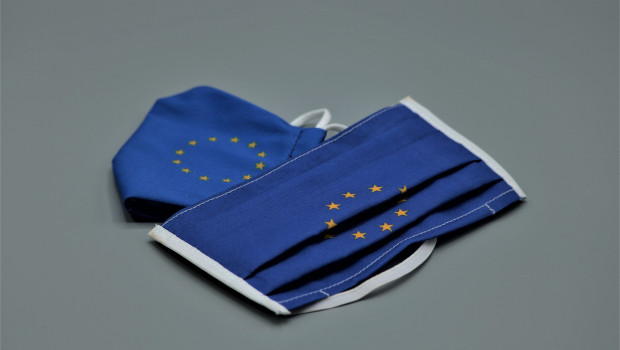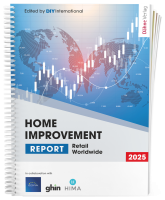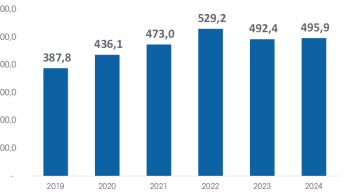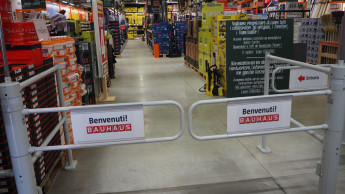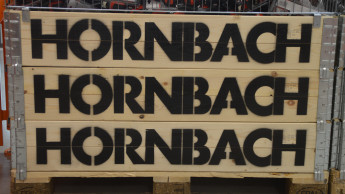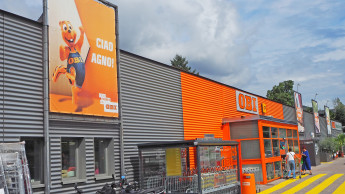The turnover of the home improvement retail industry grew by double digit percentages from May to September.
GermanyIn all 16 federal states, DIY stores (like all other retail segments) are open under the conditions that have been in place since the spring: hand hygiene, wear a mask, 1.5 to 2 m distancing, entry limited to three customers per 100 m² retail area. Hospitality venues are closed.Sales remain well above those of the previous year and are generally expected to remain higher, albeit not to the same extent as in the summer. FinlandAll stores have remained open.There are no restrictions, only recommendations and instructions issued by the government for public spaces: two-metre distancing or masks, wash hands etc.Retail demand has been much higher than usual, while B2B sales have exhibited a stable trend. Overall growth after the third quarter was 6 per cent.Minna Liuksiala, Rasi Ry ItalyThe country is in a "soft lockdown", with individual regions classified into "Yellow", "Orange" and "Red" risk zones. Milan and Lombardy are currently "red", for example, while Rome and Lazio are "yellow". "Red" means that stores are closed unless categorised as essential. These stores include supermarkets, pharmacies, hardware and home improvement stores, but they can only sell products that are necessary on a daily basis. In "orange/yellow" zones, all stores may remain open, although large shopping centres must close on Saturdays and Sundays.The rules apply for two to three weeks, and the risk level can be changed. Naples and Campania have just been upgraded from "yellow" to "red".Retail sales and those of speciality retail are buoyant, even if not to the extent they were in June and July. DIY and garden products continue to be in high demand.Marco Ugliano, Ferramenta & Casalinghi NetherlandsAll stores are open.Unlike the second quarter, retailers have not had to change their opening hours.Sales remain high and to date have been around 25 per cent higher on average than last year.Marc Nelissen, Mixpress NorwayAll stores are open, it is business as usual.Most chains have banned store visits by sales representatives and merchandisers.During the spring and summer, the DIY sector enjoyed a boom. Autumn sales are also surpassing 2019 levels, but not at the same rate as in the spring and summer.Tor Ivar Riise, Pronto Consult PolandThe situation is considered stable. All DIY stores are open; only the shops in shopping malls are closed. The exception here are pharmacies and supermarkets, but there aren't many DIY stores in malls anyway.A limit has been imposed on customers per square metre, and mask wearing and hand hygiene are obligatory. Only seniors over 65 years old are permitted to enter stores between 10 and 12 am from Monday to Friday.Sales have been brisk in the last few months as people have carried out renovations and invested in new construction. The garden season was good, too, because people spent more time at home and in the garden. In general, people have been spending more on the home than on travel. The partial lockdown is hitting retail now, however. E-commerce has naturally taken centre stage, with Obi opening an online shop for Poland. The closure of Ikea stores has had an impact on home improvement retailing.Juliusz Pakuński, Dachser Poland RomaniaAll DIY stores and garden retailers have been open. Although the pandemic is worse than ever in Romania, the retailers are happy. Home improvement stores remained open during the first wave, even during the total lockdown, and racked up extremely good sales. Online sales rose sharply.There are no restrictions on DIY stores except having to close at 9 pm. There's a nationwide curfew from 10 pm to 6 am, mask-wearing is mandatory everywhere, and schools and restaurants are closed. A general lockdown will be considered after the parliamentary elections on 6 December.Sales and customer footfall are good. In addition, more DIY stores have opened than in the last 3 years, with Dedeman opening four new stores and Leroy Merlin and Hornbach one each.Claudiu Ciobanu, bricoretail.ro SpainHome improvement stores are open, but there are different restrictions in the individual regions. In Andalusia, for example, stores may only open until 6 pm, but in Granada (which is part of Andalusia), normal opening hours apply. This is because there is a higher alert level here, and so hardware shops and DIY stores are considered essential. This is also the case in Asturias and Aragon, so home improvement stores are opening normally there also. In Castilla y León, stores may only open a maximum of 2 500 m² of their retail area. The manufacturers' and retailers' associations want hardware shops and DIY stores across the country to be classed as essential, or at least for the same regulations to apply nationwide.Sales remain upbeat. October was considered very good, as was the start of November. Most retailers have made up the losses they suffered in March and April, and many are expected to end the year with sales growth.Marta Jiménez, C de ComunicaciónSwitzerlandHome improvement stores and garden centres are open, as are all other retailers. The usual rules apply, such as 1.5 metre distancing, hand hygiene, masks or plexiglass at the tills.United KingdomIn England, garden centres and DIY/hardware stores are currently considered 'essential retailers' and are allowed to open, despite the national lockdown. Please note, the UK government is only responsible for lockdown restrictions in England - Scotland, Wales and Northern Ireland have their own rules.
Scotland: As it stands, Scotland has a five-tier (0=low, 4=high) system of restrictions that differ by region. At tier three, all retailers can remain open but at tier four, only essential retailers can open (includes DIY and garden centres). On the 17th November, it is thought that some parts of Scotland will move to tier four which is similar to the lockdown currently underway in England.
Wales: Currently, all DIY/hardware stores and garden centres are open, following a 17-day 'firebreak' which closed all non-essential businesses. During the firebreak, DIY stores wer eallowed to remain open but garden centres were not.
Northern Ireland: DIY/hardware stores and garden centres remain open at this time.
Face coverings: Across the UK, face coverings are mandatory in most enclosed public areas, including all retail establishments, unless a shopper is exempt for health reasons. Retail staff are exempt from wearing a face covering, but the vast majority of staff I've seen in DIY/garden centre retail environments are wearing them. There are plastic screens around most tills/checkout areas and shoppers are encouraged not to touch items if they are not intending to buy them.
Queuing: Many stores have implemented a queuing system and have a member of staff counting customers in and out of the store to ensure a maximum number of customers is not exceeded - this includes garden centres and DIY stores. In some cases - typically supermarkets - retailers have invested in customer counting technology which uses a traffic light system above the entrance of their stores to let customers know if they can enter, or if they have to wait for another customer to leave.
Opening times: Trading hours remain as they were before the pandemic began.
Sales areas: These are not currently restricted in home improvement/garden centres.
During the summer, garden centres and DIY stores were overwhelmed by demand and sales updates for this period appear to reflect this. Now we are in autumn, heading into winter, there still seems to be a strong appetite for home improvement and garden centre purchases as people seek to improve their properties and garden spaces after spending far more time in them than ever before, and ahead of the Christmas holiday period during which families are desperately hoping they can spend time with their loved ones.Lee Marriott, Insight DIY

 Menü
Menü




